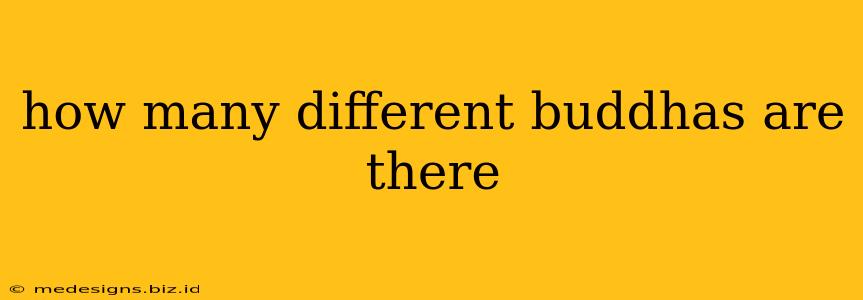The question of "how many different Buddhas are there?" isn't easily answered with a single number. The concept of a Buddha varies significantly across different Buddhist traditions and philosophies. Instead of a finite number, it's more accurate to understand the concept of Buddhahood as a state of being attainable by countless individuals across time and throughout the cosmos.
Understanding the Concept of Buddhahood
In Buddhism, a Buddha is an awakened being who has attained enlightenment and overcome the cycle of suffering (samsara). This isn't a title bestowed upon a specific individual but rather a description of a state of perfected wisdom and compassion.
The Historical Buddha: Siddhartha Gautama
While many Buddhas are believed to have existed and will exist in the future, most Buddhist traditions center around Siddhartha Gautama, the historical Buddha. He's the figure whose teachings form the basis of Buddhism. His enlightenment and subsequent teachings are the cornerstone of the various Buddhist schools and traditions.
The Future Buddhas: Maitreya
Another prominent figure is Maitreya, the future Buddha. Predicted to appear on Earth in the future to guide humanity, Maitreya represents the continued possibility of enlightenment and the ongoing nature of the Buddhist path.
The Countless Buddhas: A Cosmic Perspective
Many Buddhist schools and traditions believe in countless Buddhas throughout the universe. These Buddhas are not necessarily human in form or even limited to our understanding of physical reality. They represent the potential for enlightenment that exists within all sentient beings.
This concept stems from the Buddhist understanding of the vastness of the universe and the infinite potential for spiritual development. The number isn't relevant; rather, the possibility of achieving Buddhahood is the central teaching.
Different Names, Same Goal
The various Buddhas might have different names and are often associated with specific qualities, teachings, or realms of existence. However, they all share the common characteristic of having achieved complete enlightenment. These differing names and attributes highlight the diversity of paths to enlightenment, emphasizing that the journey is unique to each individual.
The Importance of the Question
While we can't give a definitive number of Buddhas, the very question highlights several important aspects of Buddhist philosophy:
- The universality of enlightenment: The concept of countless Buddhas underscores the possibility of enlightenment for everyone, regardless of background or circumstance.
- The ongoing nature of the path: The existence of future Buddhas like Maitreya shows that the pursuit of enlightenment is a continuous process, not a one-time event.
- The vastness of reality: The idea of Buddhas across countless worlds reflects the Buddhist worldview, which emphasizes the immensity and complexity of the universe.
In conclusion, focusing on the number of Buddhas misses the essence of the concept. The true significance lies in the understanding that Buddhahood is a potential within each being, a state of liberation attainable through the cultivation of wisdom and compassion, regardless of whether there are 10, 100, or an infinite number of enlightened beings throughout the cosmos.
